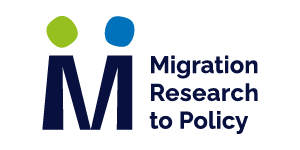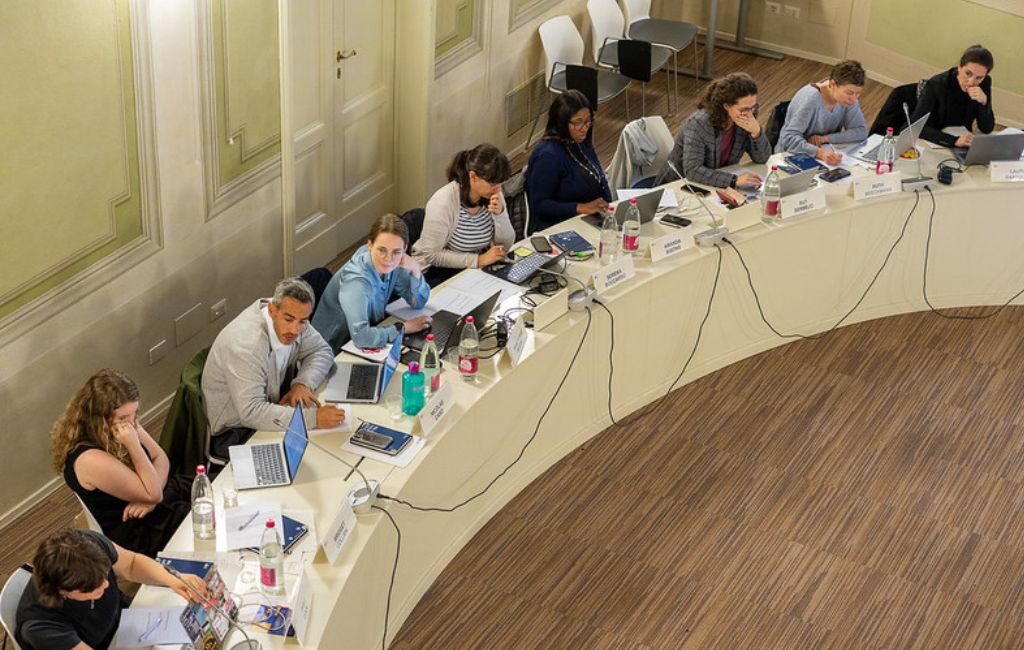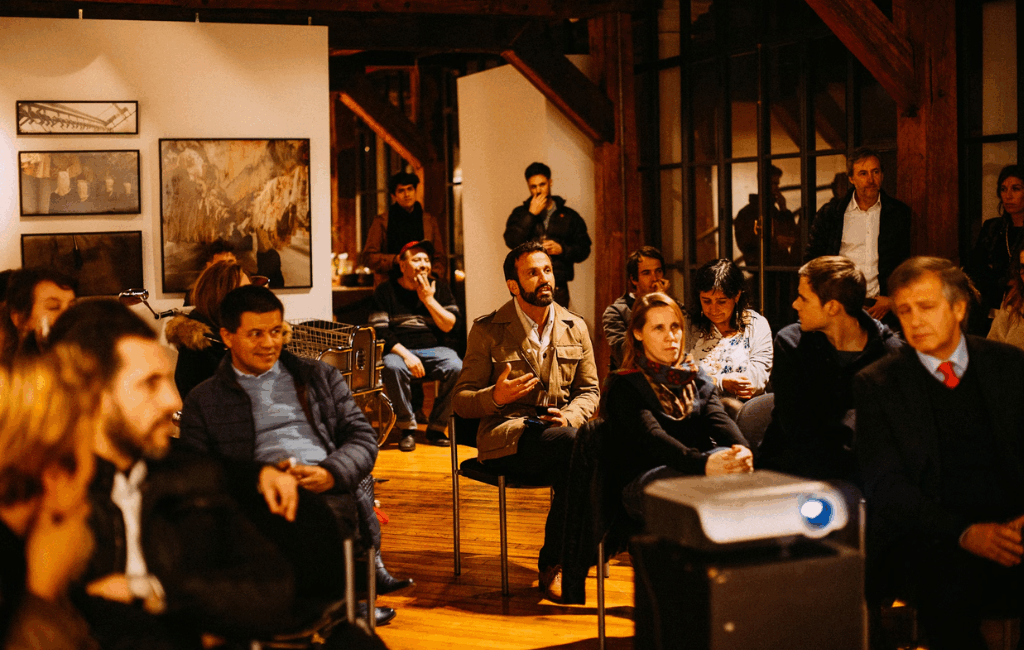
Engagement Hub
How a small organisation can impact significant policy change
Author
About
Dr. Jan Niessen
strategy, advocacy
Beth Ginsburg
Lessons for the research-policy nexus in the EU
Europe’s migration challenges 30 years ago weren’t the same as they are today, but they were pressing and unprecedented at the time. A small organisation emerged to respond: the Migration Policy Group (MPG), a think-tank founded in 1995, would end up playing a pivotal role in shaping the discourse on migration, integration, and anti-discrimination.
How did they do that and what lessons are there for today’s researchers and practictioners?
Through stakeholder interviews and analysis of MPG’s publications, a case study was created on the evolution of MPG. This short explores how MPG, as a new think tank, influenced European policy in a short amount of time.
Influencing legislation
Doing the un-thinkable
In the nineties, the EU lacked a mandate to act on migration and related issues of integration and anti-discrimination. Many governments and non-governmental stakeholders did not see the need for it. As a result, there was neither an infrastructure nor a budget for European cooperation on migration issues. MPG positioned itself as a Brussels-based non government organisation (NGO), free from affiliations and governed by a small board. It was to become known as a ‘think and do’ tank. MPG’s challenge was to establish itself as a neutral think-and-do-tank, fostering substantive discussions and policy-oriented research that engaged with governmental, non-governmental and – quite exceptionally at the time- private sector stakeholders.
Communication networks
At that time, the internet was not yet on the horizon. To gather and disseminate information MPG published the monthly news sheet the Migration News Sheet. It defied the lack of transparency of European policymaking and raised awareness of what was going on in Europe. The News Sheet relied on partners in different European countries as sources of key inside information of what was happening on the ground. This foundation of strong, cross-Europe communication laid the groundwork for MPG’s future partnerships. It pioneered bringing stakeholders together, for example at roundtables, on pressing migration and related issues during which MPG developed comparative perspectives for policy change.
Concrete proposals
Instead of criticizing existing policies (or the absence of them), MPG formulated concrete proposals for EU anti-discrimination legislation. This had not been done by an NGO at the European -evel before. Examples of these proposals included the Starting Line and the Amsterdam Proposals—both of which were drawn up after extensive consultations with practitioners and advice from academics.
Consultations like these became common practice for MPG and enabled policy recommendations that were specific and achievable. Emphasizing against a ‘one-size-fits-all’ approach, MPG advocated for tailored policies, recognizing the unique situations of different migrant groups.
Campaigning for support
MPG rallied support for the Starting Line, gaining buy-in from approximately 450 organisations and the European Parliament. It re-focused anti-racism debates to focus on concrete legislative measures and used a non-confrontational style. The success of this approach became apparent once the EU’s mandate was expanded. When the EU Commission presented its proposals for EU anti-discrimination law, they showed striking similarities with the Starting Line. In 2000, the EU finally adopted robust anti-discrimination legislation along these lines. While that was happening, MPG channeled its broad support into creating the European Network against Racism, which still exists today.
Implementation, research and capacity
After the adoption of EU anti-discrimination law, MPG launched a research project on its implementation. The project demonstrated what EU member states had to do to correctly implement EU anti-discrimination law at national level. This research developed into work commissioned and financed by the EU Commission and for which MPG set up a network of academics that produced numerous country and thematic reports and a law review. This policy-relevant research provided guidance for changing national anti-discrimination policies and law in accordance with EU law. This Network is still going strong. In addition, numerous training seminars were organised on how to use anti-discrimination legislation. Participants included hundreds of lawyers, judges, NGOs and officials. MPG also initiated the creation of a powerful and ongoing network of equality bodies, which supports victims of discrimination.
Partnerships and practical tools to inform migration
Dialogue platforms
Using its foundation of anti-discrimination expertise and broad partnerships, MPG was able to strategically inform issues related to migration and integration. They created transatlantic and European dialogue platforms through which stakeholders shared best practices and learned from each other. They worked to change the terms of migration debates highlighting migration’s potential to address labour market mismatches and demographic imbalances. Partners produced a series of country reports summarising national migration debates and analysing member states’ governments position vis-à- vis on EU immigration policy proposals.
Handbooks
In addition to country reports on policy developments, MPG produced multiple handbooks, for example on strategic litigation, on supplier diversity and migrant entrepreneurship and on immigrant integration, which also led to the creation of the EU’s website on Integration.
Benchmarking
With their partners in the private sector, MPG designed a benchmarking tool on procurement with qualitative indicators and benchmarks for the inclusion of immigrant entrepreneurs in the supply chain. It was used as a management tool and for accreditation of large procurement organisations in the private and public sector to validate their supplier diversity and scial procurement programmes. With a few partners and academics, MPG also designed a benchmarking tool for immigrant integration policies which was based on legislative measures on residence rights, family reunion, access to citizenship and anti-discrimination. This tool developed into the Migrant Integration Policy Index (MIPEX).
Lessons for researchers who want to shape policy
MPG accomplished the above in just over a decade. Its journey demonstrates how it became a dynamic force, shaping policies, fostering collaboration, and leaving a mark on the European landscape. MPG’s story provides some key lessons for current researchers and organisations who want to see Europe adopt more inclusive policies to support the rights and wellbeing of migrants.
What underlined MPG’s success were the broad partnerships and coalitions it created:
Tips for Success
Work in partnerships: MPG leveraged its academic expertise but did so in partnership with other organisations and policymakers.
Tailor policy approaches: MPG used partnerships to ensure that policy proposals were tailored, specific, achievable, and relevant.
Activate your network: MPG activated its network to create the adoption of policy measures.
Think tanks and academics often work on migration issues together. However, the case study of MPG’s early years demonstrates how NGOs can successfully work in partnership with governments, other NGOS and members of civil society and private sector stakeholders.
To learn more, read the full story of MPG’s early years in this report.
Dr. Jan Niessen is the founder and retired director of the Migration Policy Group. For 25 years he has worked to engage stakeholders in well-informed European migration debates. He designed policy-oriented research and facilitated the networking of experts.
Beth Ginsburg is a Research Associate at the Migration Policy Centre at the European University Institute. For over twenty-five years she has led projects on the socio-economic inclusion of refugees and migrants in Europe, for Migration Policy Group (MPG), the European Commission, the Council of Europe, and the corporate sector.
Related projects
Submit your idea for a ‘short’ to be featured on the Co-Lab.












